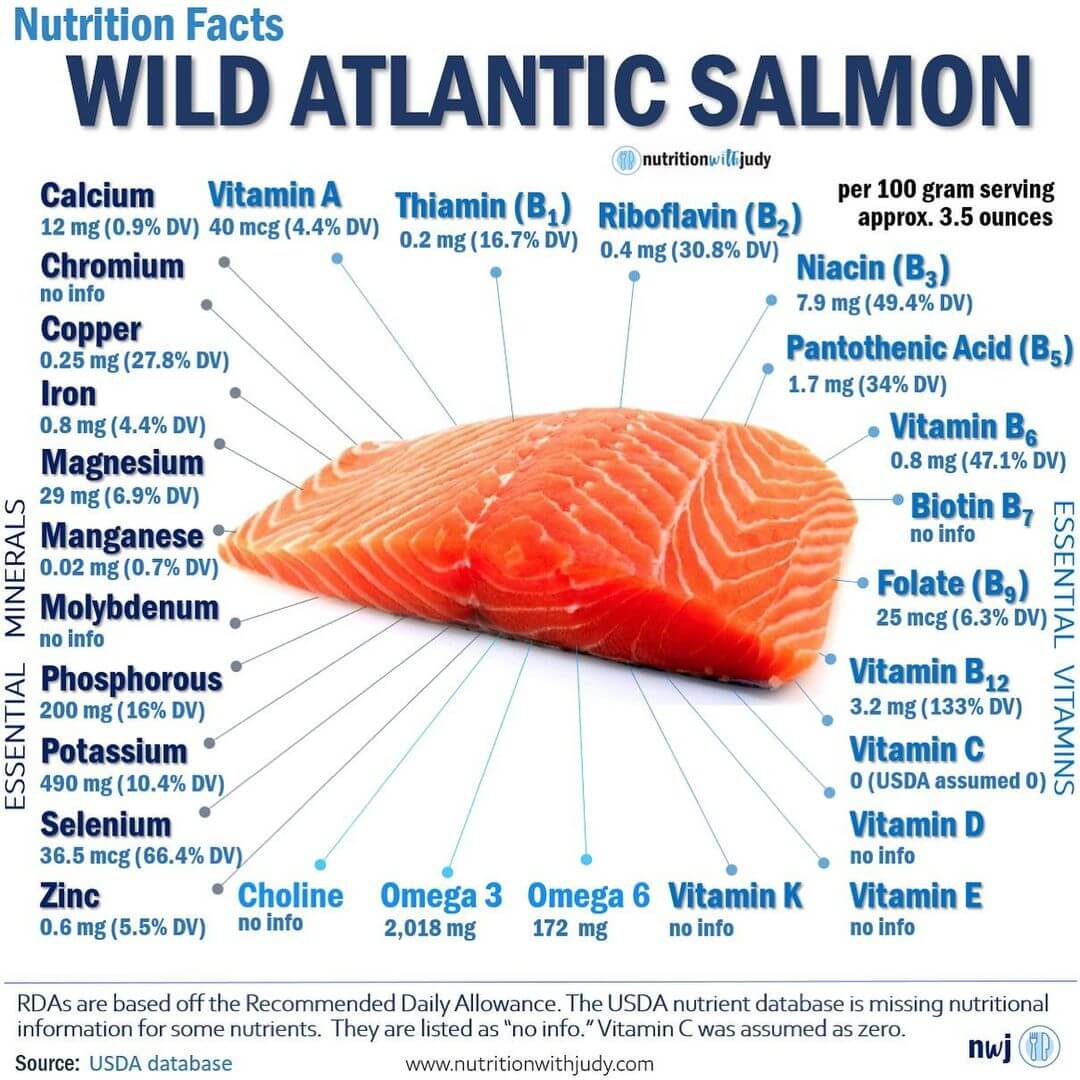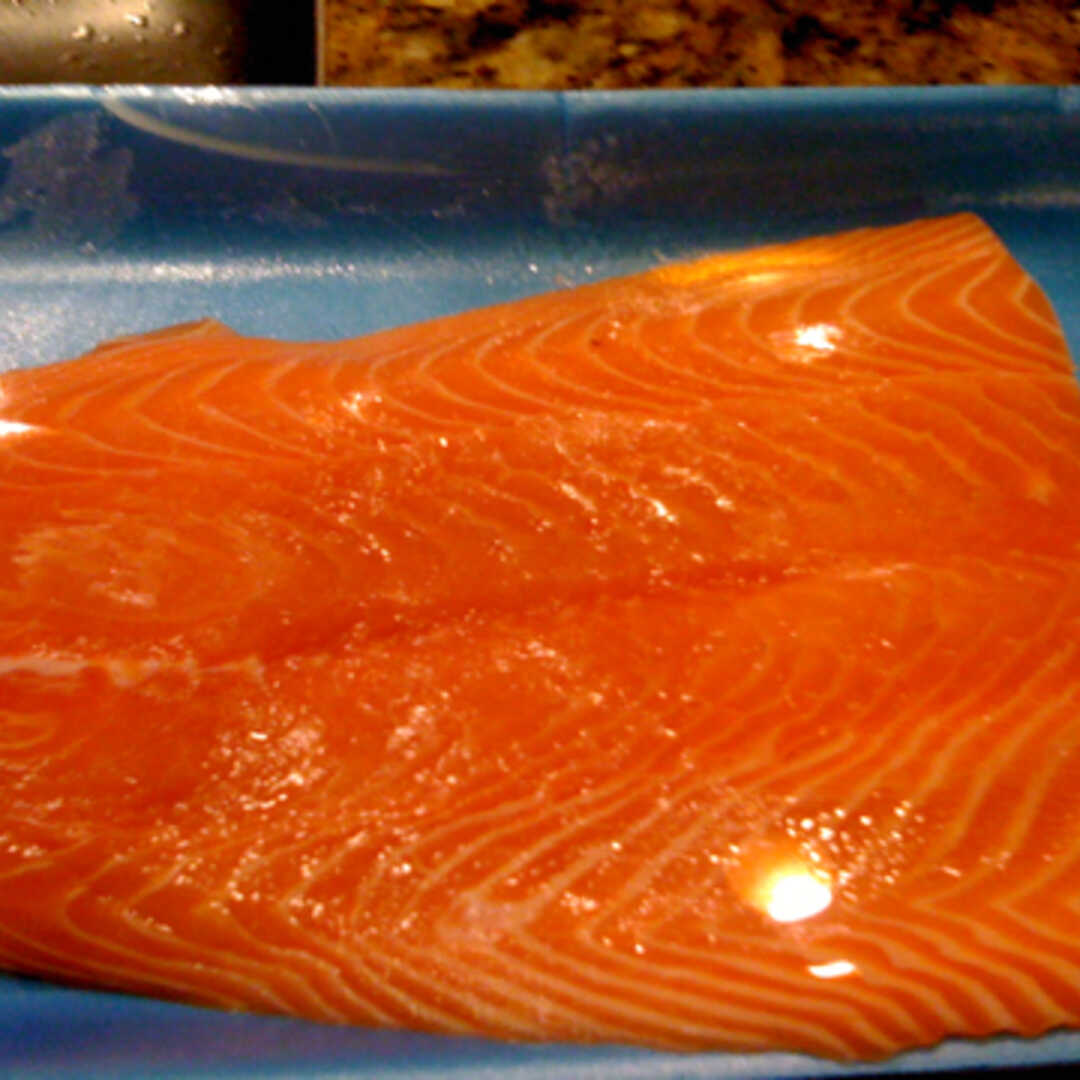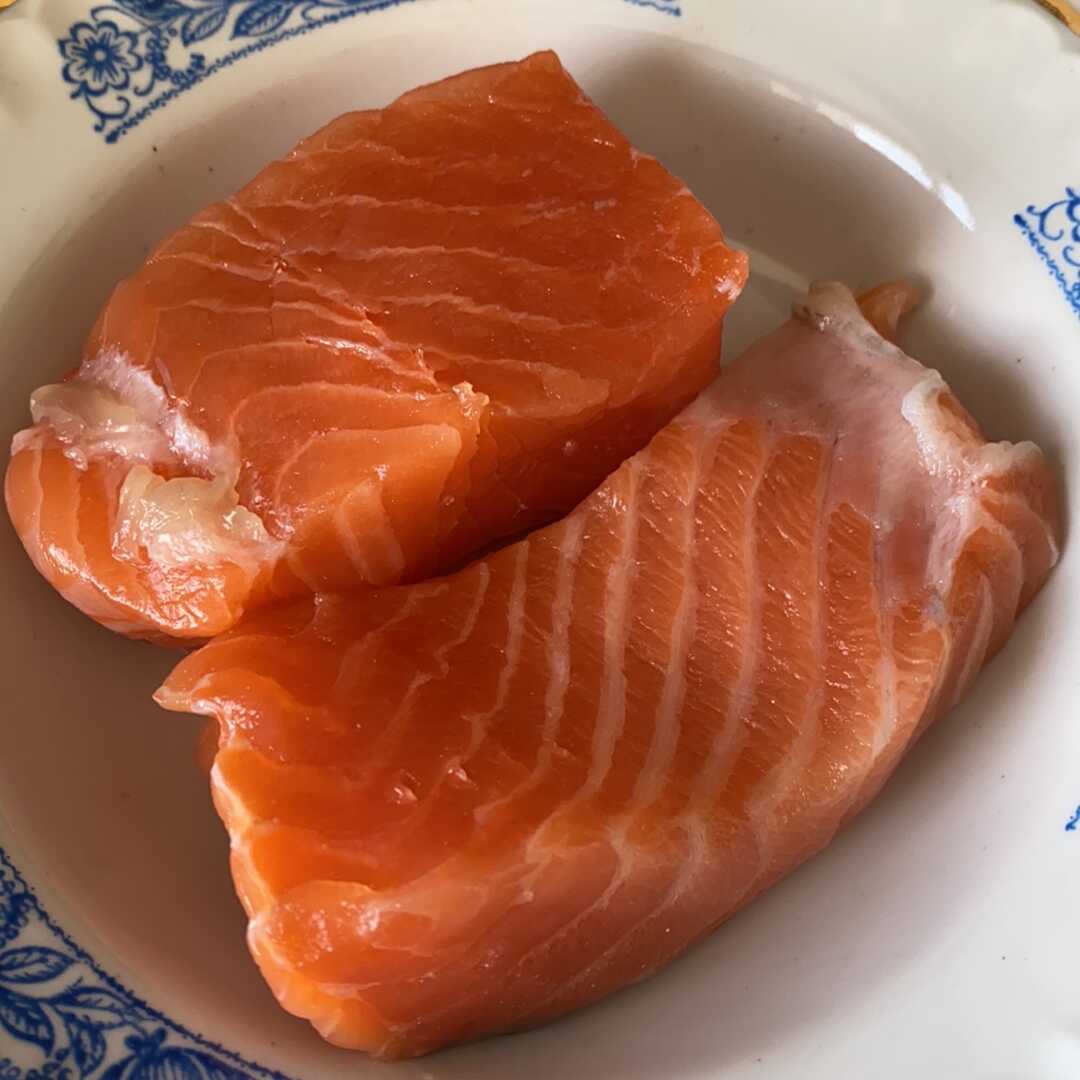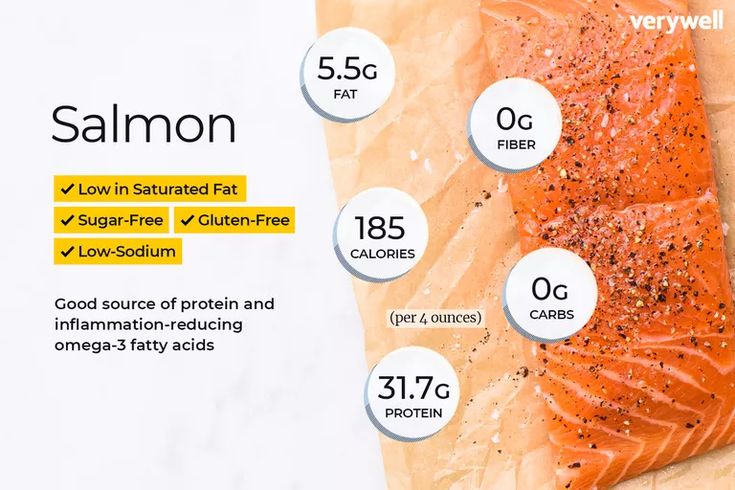Importance Of Protein In A Balanced Diet

Protein plays a crucial role in maintaining a balanced diet. It is an essential nutrient needed for the growth and repair of tissues, hormone production, enzymatic reactions, and immune function. Including an adequate amount of protein in your diet is important for overall health and well-being. Protein helps to regulate blood sugar levels, supports muscle development and strength, aids in weight management, and promotes satiety, keeping you feeling full for longer. It is important to include high-quality sources of protein, such as salmon, in your diet to ensure you are meeting your daily requirements.
Importance Of Protein For Overall Health
Protein is an essential nutrient that plays a crucial role in maintaining overall health. It is involved in various bodily functions, including the growth and repair of tissues, hormone production, enzymatic reactions, and immune function. Protein helps regulate blood sugar levels, supports muscle development and strength, aids in weight management, and promotes satiety, keeping you feeling full for longer. Including an adequate amount of protein in your diet is important for optimal health and well-being. Incorporating high-quality sources of protein, such as salmon, can ensure you meet your daily protein requirements.
Role Of Protein In Muscle Building And Repair
Protein plays a vital role in muscle building and repair. When you engage in physical activity, such as weightlifting or resistance training, your muscles undergo stress and micro-tears. Protein provides the essential amino acids needed to repair and rebuild these damaged muscle fibers, resulting in muscle growth and strength. Additionally, protein is necessary for muscle maintenance, preventing muscle loss that can occur with aging or inadequate protein intake. To maximize muscle building and repair, it is important to consume an adequate amount of protein in your diet.
Nutritional Content Of 8 Oz Salmon

In an 8 oz serving of salmon, you can expect to find a significant amount of protein, omega-3 fatty acids, and beneficial nutrients. Salmon is packed with high-quality protein, with approximately 44.97g per serving. This makes it an excellent choice for muscle building and repair. Additionally, salmon is rich in omega-3 fatty acids, which contribute to heart health and have anti-inflammatory properties. It also contains essential vitamins and minerals such as vitamin D, calcium, and iron. Incorporating salmon into your diet can provide a nutritious boost to your overall health and well-being.
Protein Content In 8 Oz Salmon
In an 8 oz serving of salmon, you can expect to find a significant amount of protein. With approximately 45 grams of protein per serving, salmon is an excellent source of this essential nutrient. Protein is crucial for various functions in the body, including muscle building, repair, and overall health. Incorporating salmon into your diet provides a convenient and delicious way to meet your protein needs. Its high protein content makes salmon a popular choice among athletes, fitness enthusiasts, and individuals looking to maintain a balanced diet.
Omega-3 Fatty Acids In Salmon
Salmon is one of the richest sources of omega-3 fatty acids, particularly EPA (eicosapentaenoic acid) and DHA (docosahexaenoic acid). These essential fatty acids play a crucial role in promoting heart health, reducing inflammation, and supporting brain function. Omega-3 fatty acids have been associated with a lower risk of cardiovascular diseases, such as heart attacks and strokes. Including salmon in your diet allows you to reap the benefits of these important nutrients, promoting overall well-being and optimal health. Additionally, omega-3 fatty acids have been linked to improved mood and cognitive function.
Recommended Daily Protein Intake

The recommended daily protein intake varies depending on factors such as age, sex, weight, and activity level. As a general guideline, it is recommended that adults consume 0.8 grams of protein per kilogram of body weight per day. For example, a person weighing 68 kilograms (150 pounds) would aim for approximately 55 grams of protein daily. However, athletes and people who engage in regular intense physical activity may need more protein to support muscle repair and growth. It is best to consult with a healthcare professional or registered dietitian to determine the optimal protein intake for individual needs.
General Guidelines For Daily Protein Intake
General guidelines for daily protein intake recommend that adults consume approximately 0.8 grams of protein per kilogram of body weight. For example, a person weighing 68 kilograms (150 pounds) would aim for around 55 grams of protein daily. This amount ensures that the body has enough protein to support various functions, including muscle repair and growth. However, it is important to note that individual protein needs may vary based on factors such as age, sex, weight, and activity level. Consulting with a healthcare professional or registered dietitian can provide personalized recommendations for optimal protein intake.
How Much Protein Is Needed For Different Lifestyles
The amount of protein needed varies based on an individual’s lifestyle and activity level. For sedentary individuals, the recommended daily protein intake is around 0.8 grams per kilogram of body weight. For moderately active individuals, such as those who engage in light exercise or recreational activities, the protein intake can be increased to 1-1.2 grams per kilogram of body weight. Those who are highly active or participate in intense physical activity, such as athletes or bodybuilders, may require even higher protein intake, ranging from 1.2-2 grams per kilogram of body weight. It is important to consult with a healthcare professional or registered dietitian for personalized protein recommendations based on specific lifestyle and goals.
Cooking Methods For Retaining Protein In Salmon

There are several cooking methods that can help retain the protein content in salmon. One effective method is to bake or grill the salmon, as this helps to preserve the nutrients. Steaming the salmon is also a good option, as it allows the fish to cook gently without losing too much protein. It’s important to avoid overcooking the salmon, as this can cause the protein to break down. Additionally, marinating the salmon before cooking can help seal in the protein and enhance its flavor. Overall, choosing gentle cooking methods and being mindful of cooking times can help retain the protein content in salmon.
Best Cooking Methods To Preserve Protein Content
When it comes to preserving the protein content in salmon, there are a few cooking methods that are particularly effective. One of the best methods is baking or grilling, as these cooking techniques help retain the nutrients in the fish. Steaming is another great option, as it allows the salmon to cook gently without losing too much protein. It’s important to avoid overcooking the salmon, as this can cause the protein to break down. Additionally, marinating the salmon before cooking can help seal in the protein and enhance its flavor. By choosing gentle cooking methods and being mindful of cooking times, you can preserve the protein content in salmon.
Tips For Cooking Salmon While Maintaining Its Nutritional Value
When cooking salmon, it’s important to take steps to preserve its nutritional value. Here are some tips:
- Avoid overcooking: Salmon is best cooked until it is just opaque in the center. Overcooking can cause the protein to break down and reduce its nutritional content.
- Choose gentle cooking methods: Baking, grilling, and steaming are great options that help retain the nutrients in the fish.
- Use minimal oil: Instead of frying or deep-frying, opt for cooking methods that require less oil, such as broiling or poaching.
- Season with herbs and spices: Enhance the flavor of salmon without adding extra calories by using herbs, spices, and citrus juices instead of heavy sauces and dressings.
- Don’t remove the skin: The skin of salmon contains healthy fats, so leaving it on during cooking can help retain nutrients and moisture.
By following these tips, you can ensure that your cooked salmon retains its nutritional value, making it a healthy and delicious addition to your diet.
Health Benefits Of Consuming Salmon

Consuming salmon offers a multitude of health benefits. As a great source of protein, it aids in muscle growth and repair. Rich in omega-3 fatty acids, salmon helps reduce inflammation, promote heart health, and support brain function. Additionally, salmon is high in B vitamins, which are essential for energy production and maintaining a healthy nervous system. Regularly incorporating salmon into your diet can help meet nutrient needs, reduce the risk of chronic diseases, and contribute to overall optimal health.
Salmon As A Source Of High-quality Protein
Salmon is renowned for being a rich source of high-quality protein. This nutrient is essential for various functions in the body, including muscle growth and repair. With approximately 22-25 grams of protein per 3.5-ounce serving, salmon is an excellent choice for those looking to meet their protein needs. Not only does it provide an abundance of protein, but it also offers a complete amino acid profile, meaning it contains all the essential amino acids our bodies need. Incorporating salmon into your diet can help ensure you receive the necessary nutrients to support overall health and wellbeing.
Additional Nutrients And Health Benefits Of Eating Salmon
In addition to being a great source of protein, salmon offers an array of additional nutrients and health benefits. It is rich in omega-3 fatty acids, which have been shown to reduce inflammation, improve heart health, and support brain function. Salmon also contains high levels of vitamin D, which is essential for bone health and immune function. Furthermore, it is packed with B vitamins, selenium, and antioxidants, which support overall health and wellbeing. Regular consumption of salmon can contribute to a well-rounded and nutrient-dense diet.
Conclusion

In conclusion, salmon is an excellent source of protein, with an 8 oz serving containing approximately 45 grams. Protein is essential for overall health, muscle building, and repair. Salmon also offers additional nutritional benefits, such as omega-3 fatty acids, vitamins, selenium, and antioxidants. Incorporating salmon into a balanced diet can contribute to optimal nutrition and support various aspects of health, including heart health, brain function, and immune function. When cooking salmon, it is important to choose methods that preserve its protein content. Overall, salmon is a nutritious and versatile addition to a well-rounded diet.
Summary Of The Protein Content In 8 Oz Salmon
An 8 oz serving of salmon contains approximately 45 grams of protein. Protein is an essential macronutrient that plays a crucial role in overall health, muscle building, and repair. Consuming an adequate amount of protein is important for supporting various bodily functions and promoting optimal health. Salmon not only provides a substantial amount of protein but also offers additional nutritional benefits, such as omega-3 fatty acids, vitamins, selenium, and antioxidants. Incorporating salmon into a balanced diet can help ensure sufficient protein intake and contribute to a well-rounded nutritional profile.
Incorporating Salmon Into A Balanced Diet For Optimal Nutrition
Incorporating salmon into a balanced diet is a great way to ensure optimal nutrition. Its high protein content, along with its omega-3 fatty acids, vitamins, selenium, and antioxidants, makes it a valuable addition to any meal plan. Including salmon in regular meals can help meet protein needs, support muscle growth and repair, and contribute to overall health and wellness. Whether grilled, baked, or pan-seared, there are many delicious ways to enjoy salmon and reap its nutritional benefits. So, consider adding this nutrient-packed fish to your diet for a well-rounded and nourishing eating plan.
FAQ About How Much Protein In 8 Oz Salmon: Understanding Nutritional Content
Q: How much protein is in 8 oz of salmon?
A: In general, an 8 oz serving of salmon provides around 45-50 grams of protein, depending on the exact type of salmon and its preparation method.
Q: Is salmon a good source of protein?
A: Yes, salmon is an excellent source of high-quality protein, as it contains all essential amino acids needed by the body.
Q: What are other nutritional benefits of salmon besides protein?
A: Salmon is also rich in omega-3 fatty acids, vitamin D, B vitamins, and minerals like selenium and potassium, making it a nutrient-dense food choice.
Q: How does the cooking method affect the protein content of salmon?
A: Cooking methods like grilling, baking, or broiling are better for retaining the protein content of salmon compared to frying, which may result in some protein loss.
Q: Can the protein content vary between different types of salmon?
A: Yes, protein content can vary slightly between different types of salmon, with wild-caught salmon generally having a slightly higher protein content than farm-raised salmon.
Q: Is it important to consider protein content when including salmon in a balanced diet?
A: Yes, protein is an essential nutrient for overall health and wellbeing, so monitoring your protein intake, including from sources like salmon, is beneficial for a well-rounded diet.

Welcome to Braddock Bay Tavern & Grill, where history, delicious cuisine, and stunning views come together to create an unforgettable experience. Our restaurant, situated on the picturesque edge of Lake Ontario, has a rich history that adds a unique charm to your dining experience. The roots of our establishment can be traced back to 1865, when it was first constructed as an icehouse. Over the years, it transformed into the historic Braddock Bay Hotel, becoming a beloved local landmark. Today, we take pride in preserving the building’s historical beauty, ensuring that every visit to our restaurant is a journey through time.